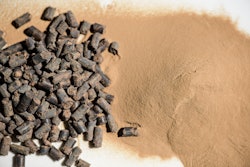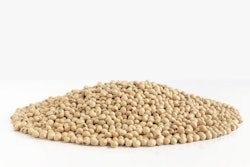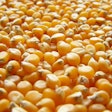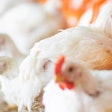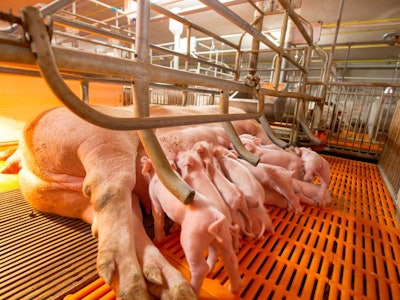
Low-cost, portable sensors would shed light on impact of air quality on farm worker, animal health, university says
Poor air quality harms human and animal health, but this hazard can be difficult to manage because swine producers have a limited ability to test the air in their barns. So a group of Purdue University researchers have set out to design their own air sensor technology.
The team, led by Purdue agricultural and biological engineering professor Jiqin Ni, has received a $500,000 grant from the Foundation for Food & Agriculture Research to develop the sensors.
“There are many commercially available technologies for particulate matter measurement. But none of them are designed for agriculture and livestock use,” Ni said in a statement. Generally speaking, he said, there are two kinds of air quality monitors on the market today. The high-end of the spectrum includes sophisticated monitors, some designed by the U.S. Environmental Protection Agency itself, that are generally too expensive for regular on-farm use. And lower-priced units at the other end of the spectrum do not always produce reliable data, Ni said.
The absence of appropriate sensors has contributed to a lack of information about air quality on and around swine farms, Ni said. But this doesn’t mean farm and barn air quality doesn’t matter. Swine barns can accumulate tiny dust particles known as particulate pollutants as well as gases such as ammonia, but the amount of these pollutants in or around a barn at any given time can change dramatically. For example, producers may increase barn ventilation and run fans to keep animals cool in the summer, while operating barns with minimal ventilation in the winter. Long duration exposure to poor air quality are related to respiratory problems in farm workers and animals, Ni said.
The sensors Ni’s team aim to develop will be calibrated with EPA-designated methods, but will come in a price range that is more affordable for farmers. They plan to package the sensor unit with the software needed to run it and a solar power supply.
The team also plans to validate their technology in the controlled environment swine barn at Purdue’s Animal Science Research and Education Center, then later at other commercial swine farms. Ni estimated that work on the project will take about two and a half years.


